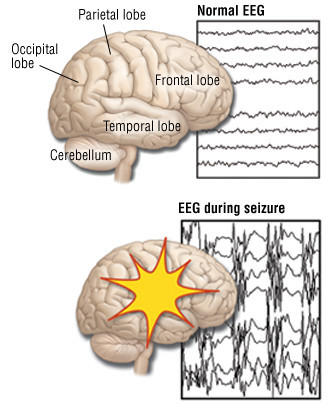
Driving with arthritis pain: Stay comfortable — and safe — behind the wheel

Daily cup of coffee may prevent afib recurrence

Gene-editing therapy lowers harmful blood fats in early study

What is EMDR therapy, and who can it help?

GLP-1 drugs versus bariatric surgery for treating obesity

Two dumbbells, three exercises, and 10 minutes

Easing the emotional burden of IBS

Modify your push-ups to meet your fitness level

What is long QT syndrome?

Stroke survivors may benefit from very low LDL levels
Neurological Conditions Archive
Articles
Hit hard by POTS
Postural orthostatic tachycardia syndrome (POTS) affects up to a million Americans, more than three-quarters of whom are women. A main feature of POTS is an intolerance to being upright. Symptoms include heart rate spikes, palpitations, dizziness, and fatigue. Risk factors include recent viral infection, surgery, concussion, or a long period of inactivity. POTS symptoms can be managed through exercising, drinking more fluids, increasing salt intake, wearing compression garments, and using counter-pulsation poses.
Tick season is expanding: Protect yourself against Lyme disease
With ticks thriving in a wider geographic range, appearing earlier and sticking around later, it's important to stay vigilant about protecting yourself against ticks that cause Lyme disease and other illnesses. Learn some steps you can take to avoid tick bites.
AFM: A scary polio-like illness
Acute flaccid myelitis (AFM) is an uncommon illness with symptoms that are somewhat similar to polio — weakness and loss of muscle tone in the arms and legs. AFM occurs most often in children and treatment is largely supportive.

Driving with arthritis pain: Stay comfortable — and safe — behind the wheel

Daily cup of coffee may prevent afib recurrence

Gene-editing therapy lowers harmful blood fats in early study

What is EMDR therapy, and who can it help?

GLP-1 drugs versus bariatric surgery for treating obesity

Two dumbbells, three exercises, and 10 minutes

Easing the emotional burden of IBS

Modify your push-ups to meet your fitness level

What is long QT syndrome?

Stroke survivors may benefit from very low LDL levels
Free Healthbeat Signup
Get the latest in health news delivered to your inbox!
Sign Up








